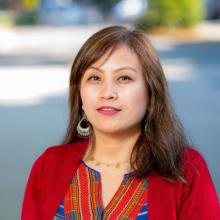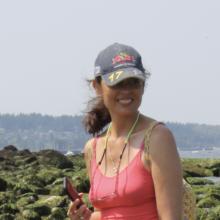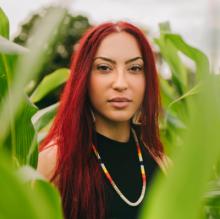Being a public scholar means not only contributing toward the public good but also entails carrying out a meaningful responsibility toward a sustainable and respectful engagement and collaboration with the community centering the public welfare.
Research Description
My research aims to explore Indigenous or Adibashi women’s lived individual and collective experiences and mechanisms to deal with gender-based violence and offer a community-led framework of justice to address gender-based violence in the context of Chittagong Hill Tracts (CHT), Bangladesh. The Adibashi women are subjected to gendered and sexual violence perpetrated by both Adibashi and non-Adibashi men in Bangladesh. Even though the existing scholarly literature on Indigenous issues and gender in Bangladesh looks at structural violence and gendered impact on Adibashi women, it ignores the standpoints of Indigenous women. As a result, this sphere remains under-researched and lacks critical intersectional and Indigenous feminist perspectives. Informed by feminist ethnography, intersectional Indigenous feminist approach, and my position as a Chakma Indigenous scholar, my research project entails the following questions: how do Indigenous women in the CHT, Bangladesh, comprehend violence against Indigenous women intersected with gender, sex, race, class, ethnicity, and different power structures? What navigational mechanisms do they apply to address violence in the rural and urban settings based on their lived subjective and collective experience as Adibashi women? What are the community approaches in response to violence against Indigenous women?
What does being a Public Scholar mean to you?
Being a public scholar has an important meaning to me. It means not only contributing toward the public good but also entails carrying out a meaningful responsibility toward a sustainable and respectful engagement and collaboration with the community centering the public welfare.
In what ways do you think the PhD experience can be re-imagined with the Public Scholars Initiative?
The Public Scholars Initiative (PSI) is a great platform to support and embolden Ph.D. scholars to engage and actualize the scholarship they contemplate for. It also paves the way for Ph.D. scholars who aspire to contribute to the community by engaging with the community through alternative and innovative approaches. In addition, the PSI creates pathways for broader networking and future collaboration among scholars from diverse disciplines and with the communities.
How do you envision connecting your PhD work with broader career possibilities?
My Ph.D. work is informed by my experience as a Chakma Indigenous woman from the CHT, the region that has historically undergone and still undergoing different geo-political and economic transformations by having a profound gendered impact on Indigenous communities. Also, my engagement with Indigenous women’s collectives in Bangladesh has profoundly influenced me to work on this sensitive and challenging topic of violence against indigenous women but also a very important topic for Indigenous women’s voice and rights for their self-determination on their bodies, identities, and access to equitable justice. I aspire to build my career in teaching and further research through engaging with Indigenous communities.
How does your research engage with the larger community and social partners?
My research engages with the larger community in two ways. First, it involves Indigenous women’s lived individual and collective experiences of navigating violence. Secondly, it allows me to engage with the community collectives and community members and co-create approaches to address violence against women in Indigenous communities in the context of CHT, Bangladesh, so that the community voice is heard based on their needs and concerns to ensure Indigenous women’s access to justice.
Why did you decide to pursue a graduate degree?
It is my mother’s, my maternal grandmother’s, as well as my own dream to become one of the very few Chakma women scholars by attaining a Ph.D. degree in Arts and Social Sciences. I want to fill the gap in the Indigenous scholarship in South Asia in the spheres of Indigenous feminist studies on gender, violence and Indigenous women’s resistance and resurgence politics. Also, my engagement with Indigenous women’s rights collectives and the intriguing activism by many Indigenous women at the grassroots level in Bangladesh motivated me to pursue my graduate studies with an aspiration to contribute to my community, especially for Indigenous women and girls’ rights, through my work.
Why did you choose to come to British Columbia and study at UBC?
While researching for the graduate studies program in Canada, I found out UBC is one of the top universities that supports research innovation, and the Asian Studies program is one of the leading programs in the world. So, I changed my academic track from Women and Gender Studies to Asian Studies as it is such a unique program that contains a wide variety of faculty members with expertise in the fields I look forward to learning. In addition, very few Indigenous women from Bangladesh have been able to pursue graduate studies, more particularly in the field of Arts and Social Sciences. This fact also drove me to decide to study at UBC and to inspire young Indigenous women in my community who dream of graduate studies in a renowned higher educational institution like UBC.





